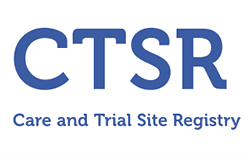Authors
Marlinde L. van den Boogaard, Richard J.L.F. Lemmers, Judit Balog, Mariëlle Wohlgemuth, Mari Auranen, Satomi Mitsuhashi, Patrick J. van der Vliet, Kirsten R. Straasheijm, Rob F.P. van den Akker, Marjolein Kriek, Marlies E.Y. Laurense-Bik, Vered Raz, Monique M. van Ostaijen-ten Dam, Kerstin B.M. Hansson, Elly L. van der Kooi, Sari Kiuru-Enari, Bjarne Udd, Maarten J.D. van Tol, Ichizo Nishino, Rabi Tawil, Stephen J. Tapscott, Baziel G.M. van Engelen, Silvère M. van der Maarel
Journal
American Journal of Human Genetics, volume 98, issue 5, pages 1020-1029
Publication date
May 2016
Abstract
Facioscapulohumeral dystrophy (FSHD) is associated with somatic chromatin relaxation of the D4Z4 repeat array and derepression of the D4Z4-encoded DUX4 retrogene coding for a germline transcription factor. Somatic DUX4 derepression is caused either by a 1–10 unit repeat-array contraction (FSHD1) or by mutations in SMCHD1, which encodes a chromatin repressor that binds to D4Z4 (FSHD2). Here, we show that heterozygous mutations in DNA methyltransferase 3B (DNMT3B) are a likely cause of D4Z4 derepression associated with low levels of DUX4 expression from the D4Z4 repeat and increased penetrance of FSHD. Recessive mutations in DNMT3B were previously shown to cause immunodeficiency, centromeric instability, and facial anomalies (ICF) syndrome. This study suggests that transcription of DUX4 in somatic cells is modified by variations in its epigenetic state and provides a basis for understanding the reduced penetrance of FSHD within families.
DOI link
10.1016/j.ajhg.2016.03.013



